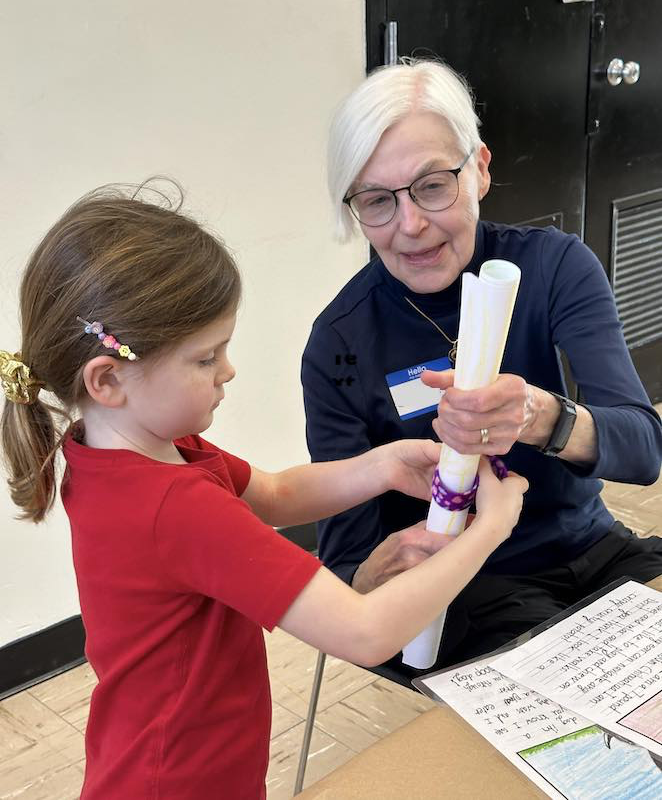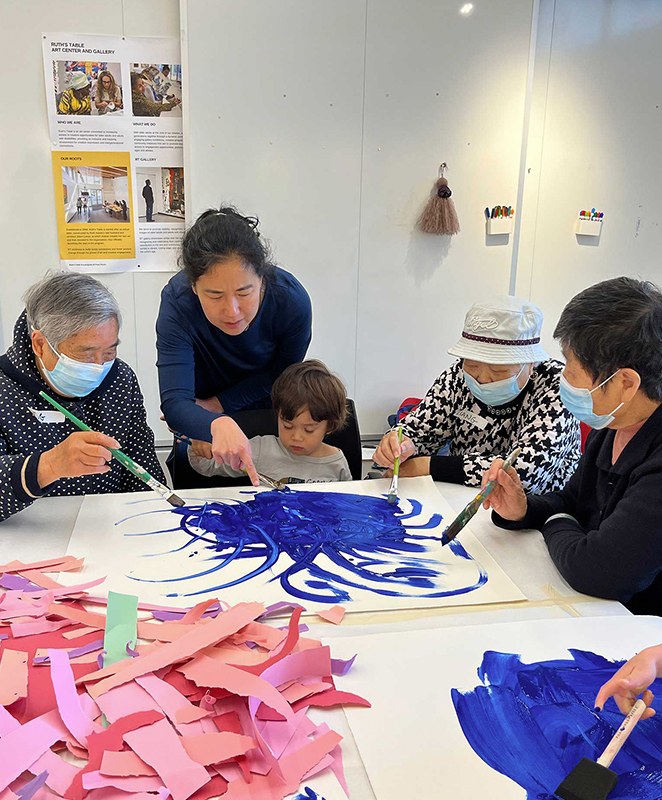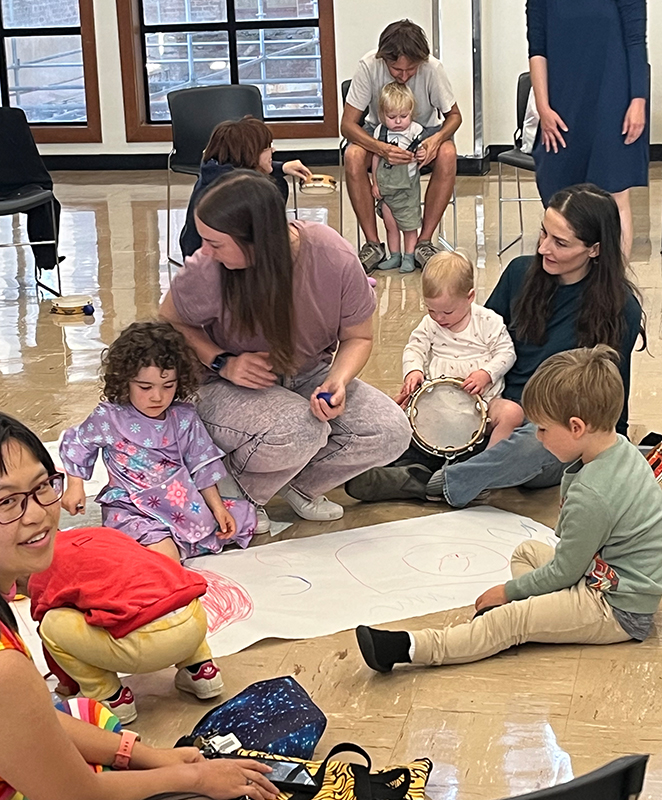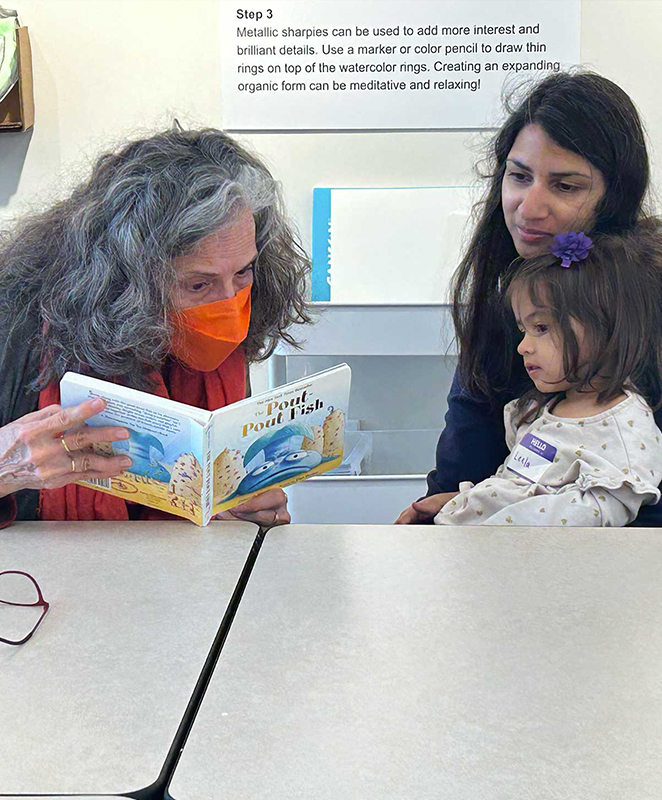By creating accessible, welcoming spaces, we facilitate organic intergenerational community-building between young children, their caregivers, and older adults who come from across the city, with an emphasis on engaging participants from the Mission and surrounding neighborhoods. Sessions typically take place on Saturday mornings; each led by a facilitator who is a teaching artist/musician. All activities are designed to foster interaction and social connections between participants of all ages, opening up a playful space to get messy, experiment, learn from each other’s techniques, and share the pleasure of creating art and music together.




A recent report from the US Surgeon General shows that loneliness has reached national epidemic levels as a public health crisis, and causes measurable physical and mental harms. Among other troubling findings, the report indicates that chronic loneliness and social isolation among older adults can increase the risk of developing dementia by 50%. To counter these harmful trends, research shows that intergenerational interaction has tangible health and wellness benefits for participants of all age groups. Our group was inspired by models of intergenerational play groups across the globe, in Australia, Singapore, Japan, and Seattle, and the measurable ways they are helping people of all ages thrive through social connection. The pandemic has only increased the social isolation that was already pervasive in modern society. Older adults are particularly susceptible to high morbidity and mortality due to COVID-19, with numerous outbreaks in senior care centers. Consequently, while the rest of society is emerging or has already emerged from quarantine, many older adults continue to isolate based on fear of disease. Many group activities that serve older adults have not returned, further exacerbating and extending the social isolation crisis plaguing this population. We hope our events can serve as venues for older adults in the neighborhood to reengage socially.
Many young children do not live with or near their grandparents, and many elders do not live with or near their children and grandchildren. We know that people of all ages benefit from friendly interaction with those both older and younger, yet there are few designated cultural spaces for intergenerational communities to develop organically. Our group offers a free, accessible opportunity for older adults, children, and adult caregivers to gather.
We want to raise our children to be thoughtful and generous community members, beyond their immediate family and social circles. As parents, we have to be particularly deliberate with this intention, since the pandemic and the extreme isolation it has caused constitutes a significant portion of our children’s lives thus far. We must demonstrate that such insularity is not the norm, and that great joy can be derived from generosity and engagement with the greater community. At a young age, children can best serve their communities by being themselves, bringing energy, vitality, and joy to their interactions with others. We hope that these sessions lay the groundwork for a life of service and stewardship.
and feel that they are an asset to their community — a valuable experience that many in the US lack. Feedback from our community partners echoes a body of research documenting how older adults struggle with a perceived decline in their “usefulness” as they age. Research suggests that having a sense of purpose is correlated with better health and wellness in older adults. Our program gives older adults the chance not only to interact socially with a mixed age group, but also to contribute their time, attention, and knowledge in a way that benefits young children and their parents.
Older residents of SF have lifetimes of knowledge and experience to share with younger adults and children. Their wisdom may be especially valuable for parents of young children. For instance, at one session, a Latina older adult shared her experience of growing up under cultural erasure: she was forbidden from speaking Spanish in school, so she did not learn it until adulthood. This story offered important and poignant context to parents navigating the current school system, where bilingual education is highly valued and enrollment very competitive.